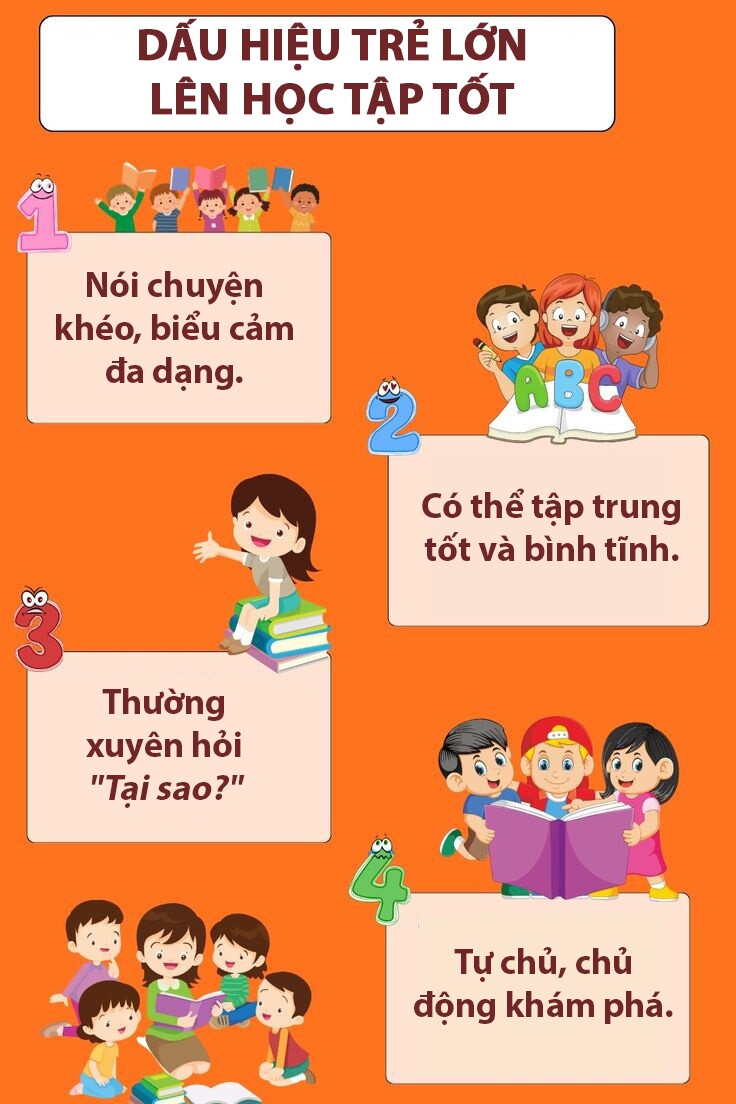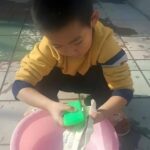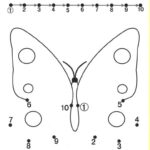With nearly 20 years of experience as a kindergarten principal, this educator has noticed certain traits in children that indicate a higher propensity for academic excellence. Through daily interactions, she has identified four key signs that suggest a child may possess the potential to become a top student and a lifelong learner.


Expressive Communication and Diverse Facial Expressions – The Logic Behind Chattiness
It’s common for parents to feel overwhelmed when their children are overly talkative. However, this talkativeness is an early indicator of strong language and logic skills. Children who talk a lot tend to have active brains, reflecting their developing communication abilities.

Image source: Pinterest.
When children engage in constant chatter, they are expressing their thoughts and emotions while simultaneously organizing and categorizing their language. This natural process enhances their language skills. These children are curious about the world around them, constantly asking questions and seeking answers.
This ability is crucial for future reading comprehension and writing expression. Children who talk a lot tend to develop a richer vocabulary and become more effective communicators. Moreover, frequent speaking provides them with opportunities to practice grammar structures and improve their listening skills.
Therefore, parents should practice patience, provide guidance when needed, and view their children’s voices as a catalyst for cognitive development.

Chattiness is a sign of children expressing their thoughts and emotions.

Focused and Calm – The Golden Sign of Concentration
If a child can remain focused on a task, such as solving a puzzle or drawing, without being distracted by external stimuli, it indicates an excellent ability to concentrate. Concentration is the foundation of learning.
Strong concentration enables children to gain a deeper understanding of knowledge rather than a superficial grasp. They absorb information more effectively, analyze complex concepts, and develop critical thinking skills. This is vital in modern education, as learning involves not just memorization but also application and creativity.
To nurture this ability, parents should create an ideal learning environment, minimizing distractions. A quiet, well-lit, and organized space will help children maintain their focus.

Concentration enables children to develop a deeper understanding of knowledge.

Frequent “Why” Questions – Curiosity Fuels Learning
“Why is the sky blue?” “Why do birds fly?” Parents’ responses to these endless “why” questions directly impact their children’s curiosity and learning motivation.
Curiosity drives children to explore the world and is the essence of learning. When children ask these questions, they are seeking answers and making sense of their surroundings. Children who are curious and inquisitive tend to have a stronger desire for knowledge and a deeper thirst for learning.
They will investigate the environment, natural phenomena, and complex concepts they don’t yet understand. In doing so, they stimulate their brains, form new connections, and strengthen their critical thinking abilities.
If a parent doesn’t know the answer, they should explore books, videos, or other resources with their child. Beyond encouraging questioning, parents should also provide opportunities for children to discover the world. Taking walks in the park, engaging in outdoor activities, and visiting museums will broaden their horizons and nurture their natural curiosity.

Curiosity drives children to explore and learn about the world.

Self-Initiated and Proactive – The Power of Intrinsic Motivation
Some children don’t need constant prompting from their parents. They take the initiative to explore and discover new things, whether it’s reading books, conducting experiments, or learning new skills. These children exhibit a strong passion for learning, and exploration becomes an integral part of their lives.
This self-motivation is key to their long-term academic success. Self-directed learners possess strong critical thinking skills, time management abilities, and the capacity to set and pursue goals despite challenges and setbacks.

Self-initiated learners take charge of their exploration and discovery.
Parents can nurture and strengthen their children’s intrinsic motivation by setting appropriate goals, providing abundant learning resources, and offering timely positive feedback. Creating a rich learning environment with books, educational games, and interactive activities will further encourage exploration and growth.
It’s essential to recognize that each child is unique, and understanding their interests and abilities will help parents guide them effectively. Encourage your children to pursue their passions, whether in the arts, sciences, or sports, fostering their holistic development.




































